How I sued British Airways via the Small Claims Court / Money Claim Online, after CEDR failed
Links on Head for Points may support the site by paying a commission. See here for all partner links.
This article explains how to take British Airways to the Small Claims Court, via the Money Claim Online process. It is based on my own experiences.
Two years ago we ran a detailed article on how to take British Airways to CEDR complaints arbitration. CEDR is an independent dispute resolution body that adjudicates disputes between passengers and subscribing airlines, and is meant to help both sides avoid a court case.
CEDR does not always work, however, as I found out myself last year. I thought this article would make an interesting follow-on to our original 2017 article.
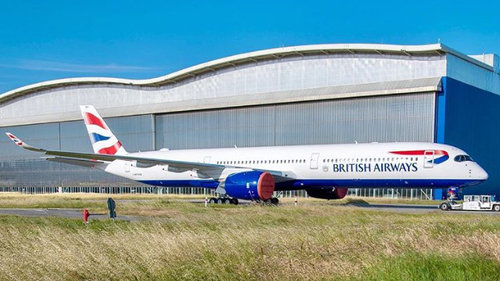
How did I end up taking British Airways to court?
This time last year I (Rhys, not Rob, in case you didn’t notice the name at the top) was due to fly home after six months in the United States. I had been studying abroad as part of my degree in the suburbs of Baltimore, and had finished my academic year with a mini road trip visiting my friends around Pennsylvania and Maryland.
I was scheduled to fly on BA228, a Boeing 787 flight from Baltimore Washington International airport. British Airways is the only carrier to fly direct from Baltimore to Europe.
I was staying at a friend’s home on the outskirts of Philadelphia on the morning of my departure. The plan was to give another friend a lift home on my way to Baltimore before dropping off my rental car and hopping on my evening departure.
That was the plan until, whilst having breakfast, I tried to check in – and found the flight had been cancelled. The Rolls Royce 787 engine problems meant that my aircraft had been grounded.
This is the first time this had ever happened to me. Although I’ve flown a significant amount, I had never had the bad luck of being on a cancelled flight.
From many destinations this wouldn’t be an issue – you’d simply hop on to the next available flight. Except, of course, that British Airways is the only carrier to connect Baltimore Washington International with Europe – and they only fly once daily.
British Airways wanted to reroute me via Chicago. I would fly to Chicago the following day and then catch a connecting flight home.

Geographically, however, I was closer to Philadelphia International Airport. I knew they had open seats from a quick search online, so I called the BA customer service team.
Of course, flying from Philadelphia would mean dropping my rental vehicle off at a different location, and rental car companies are notorious for ratcheting up costs for unexpected eventualities. I assumed, however, that British Airways would be liable under EU261 law and the Montreal Convention.
I was successfully re-booked and headed off towards Philadelphia, where my flight was leaving a few hours earlier than my original! It was a little chaotic but I was glad to be sitting on an aircraft taking me home. I ended up paying almost twice as much as my original reservation to drop my car off in Philadelphia instead.
On landing at Heathrow we were also subject to a go-around – also my first! – which meant that we had to abort our first landing attempt due to high crosswinds. There’s nothing quite like being on a Boeing 747 which is about to touch down before quickly accelerating away.
Once home, I started filing the relevant paper work regarding my cancellation. I was entitled to compensation thanks to EU261, since the cancellation was fewer than 14 days in advance. I also submitted my rental car receipts, asking British Airways to cover the difference in cost between my original reservation and the actual costs incurred.
British Airways got back within the week, agreeing to my EU261 compensation. Because I had actually taken an early flight than the one I booked, and had landed within 4 hours of my original arrival time, I was only entitled to half of the €600 compensation package for flights over 3,500km. On my request for the additional car hire costs incurred, however, they remained silent.
This started a lengthy back-and-forth between myself and the British Airways customer relations team.
If you look at the wording of EU261 you’ll see that Article 8(3) states that where a region is served by several airports and an airline offers a flight to a different airport:
“the operating air carrier shall bear the cost of transferring the passenger from that alternative airport either to that for which the booking was made, or to another close-by destination agreed with the passenger”
Now, in the law this is a little ambiguous since it refers only to the destination rather than departing airport. However, it is based on a principle that if a carrier re-routes you, they need to ensure that you are not out of pocket for the costs of getting to an alternative departure airport or from an alternative arrival airport.
Furthermore, the Montreal Convention states that “The carrier is liable for damage occasioned by delay in the carriage by air of passengers, baggage or cargo.” It would be hard, if not impossible, to argue that an increased rental car drop off fee would not count as ‘damage occasioned’ by the cancellation of a flight.
Nonetheless, British Airways argued it was not liable, and I remained out of pocket to the tune of £282.
Taking British Airways to CEDR arbitration
If you have ever had a dispute with British Airways you will know that the next step in attempting to resolve the matter is to head to the CEDR.
As our 2017 CEDR article explains, it is a relatively simple process that requires you and the defendant to submit a statement. It is then adjudicated by the CEDR.
Though simple, it is a slow process. Once you have submitted your statement the defendant is given several weeks to submit theirs, after which you are allowed to add any additional comments. The dispute then joins the queue of disputes awaiting an adjudicator (this takes several weeks) before, finally, a decision is made.
It is, potentially, too simple. The adjudicator is unable to communicate directly with either claimant or defendant, and is therefore unable to ask for additional evidence to clarify any positions. There is also no way to appeal the adjudicators decision within the CEDR framework.
This is a problem when your case is as complex as mine. The problem was that the original vehicle I rented did not have functioning headlights, which meant I had to swap the car free of charge mid-way through my renting period. The car I dropped off was not the same as the one I originally picked up and it was not possible to easily tell from the final confusing receipt I was given what the additional drop-off fee was.
The adjudicator believed that the additional charge showing on my receipt was related to replacing the car mid-rental, instead of being due to the change of drop-off location. This assumption could have been easily corrected had they been able to contact me to clarify the situation.
This was frustrating because the adjudicator had theoretically ruled in my favour but stated that as I had not suffered any extra drop-off fees I had no right to any claim on BA. I went back to Hertz and ended up getting two written statements that unambiguously stated I was being charged a higher rate due to the drop off location. There is no right of appeal with CEDR so the only option I had available was to go to the Small Claims Court.
Taking British Airways to the Small Claims Court
Whilst the CEDR is a simple process, going to the small claims court is an entirely different world, and slightly terrifying at that given it is an official legal process. I may not even have proceeded had I not had a family friend who specialises in aviation law and deals with airline disruption all the time. He insisted that I had a case, and so I pushed on.
I did a quick bit of research on how the small claims court works. Despite a lot of legal jargon it is quite simple to file a claim, since it can all be done online. The online form asks for a statement, a timeline of the events, the evidence you wish to file and where you would like the hearing to take place. You also have to pay a fee upfront, which varies depending on how much you are claiming. I would have to pay £25 to file the case and another £25 if it got to hearing. You can see the fee brackets on the gov.uk website here.
I resubmitted my statements, this time with the additional evidence I had received from Hertz, and paid the £25 court fee. Then I waited.
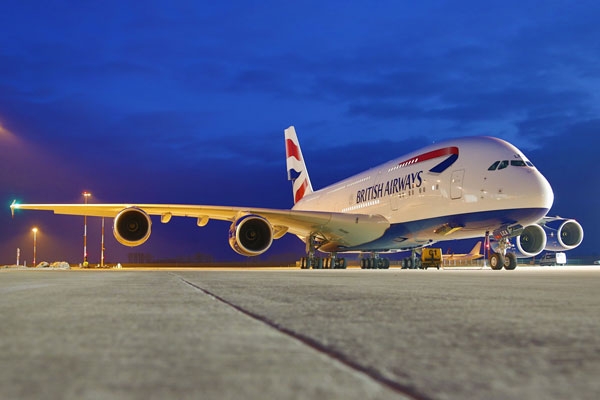
British Airways was notified of my filing and a few weeks later filed their own statement, after which we again waited – for months.
Although filing a claim is fairly simple, there is very little information once the claim is being processed. I got various automated emails that required certain forms with complicated names be filed at certain times; every so often I was copied into an email from the BA legal team. In this respect, the CEDR is definitely a simpler process although I quickly realised that if I thought the CEDR was slow, law courts are in a league of their own…
Finally, however, eight months after the flight in question, my claim was accepted by the judge and I was given a hearing date in May.
I was given a final deadline in April to file my final documents and evidence. Whilst I re-wrote and re-formatted my statements to comply with the court requirements, I got in touch with the legal team at British Airways asking if they did not want to settle the claim and save everyone a lot of trouble. I did not hear back.
Two days before the deadline to submit my documents and pay the court hearing fee, the British Airways liaison got in touch, asking to settle the case. They agreed to pay the full amount of my claim as well as the fees I had already paid to the Small Claims Court. After nine months of paperwork and fighting my corner I finally had my £282 back, plus the court fees I had paid.
My dispute with British Airways has taught me never to accept defeat simply because the process is long and complex. I have also lost all my patience for dealing with the screw-ups of big companies.
Two weeks after my flight with British Airways was cancelled, I found being turned away from an easyJet flight. I think I may be cursed now …..
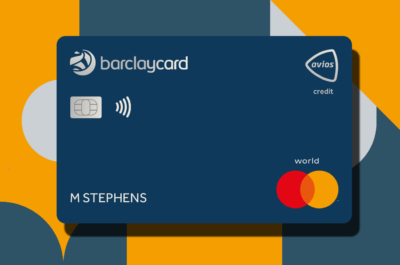
How to earn Avios from UK credit cards (April 2024)
As a reminder, there are various ways of earning Avios points from UK credit cards. Many cards also have generous sign-up bonuses!
In February 2022, Barclaycard launched two exciting new Barclaycard Avios Mastercard cards with a bonus of up to 25,000 Avios. You can apply here.
You qualify for the bonus on these cards even if you have a British Airways American Express card:

Barclaycard Avios Plus Mastercard
Get 25,000 Avios for signing up and an upgrade voucher at £10,000 Read our full review

Barclaycard Avios Mastercard
5,000 Avios for signing up and an upgrade voucher at £20,000 Read our full review
There are two official British Airways American Express cards with attractive sign-up bonuses:

British Airways American Express Premium Plus
25,000 Avios and the famous annual 2-4-1 voucher Read our full review
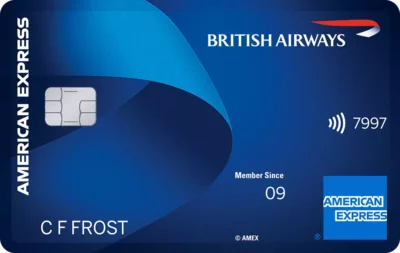
British Airways American Express
5,000 Avios for signing up and an Economy 2-4-1 voucher for spending £15,000 Read our full review
You can also get generous sign-up bonuses by applying for American Express cards which earn Membership Rewards points. These points convert at 1:1 into Avios.

American Express Preferred Rewards Gold
Your best beginner’s card – 20,000 points, FREE for a year & four airport lounge passes Read our full review

The Platinum Card from American Express
40,000 bonus points and a huge range of valuable benefits – for a fee Read our full review
Run your own business?
We recommend Capital on Tap for limited companies. You earn 1 Avios per £1 which is impressive for a Visa card, along with a sign-up bonus worth 10,500 Avios.
SPECIAL OFFER: Until 12th May 2024, the Capital on Tap Business Rewards Visa card is offering a bonus of 30,000 points, convertible into 30,000 Avios. You must have a Limited Company to apply. Click here to learn more and click here to apply.

Capital on Tap Business Rewards Visa
Huge 30,000 points bonus until 12th May 2024 Read our full review
You should also consider the British Airways Accelerating Business credit card. This is open to sole traders as well as limited companies and has a 30,000 Avios sign-up bonus.
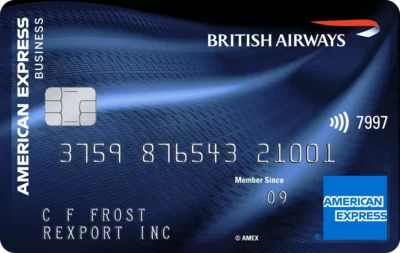
British Airways Accelerating Business American Express
30,000 Avios sign-up bonus – plus annual bonuses of up to 30,000 Avios Read our full review
There are also generous bonuses on the two American Express Business cards, with the points converting at 1:1 into Avios. These cards are open to sole traders as well as limited companies.

American Express Business Platinum
40,000 points sign-up bonus and an annual £200 Amex Travel credit Read our full review

American Express Business Gold
20,000 points sign-up bonus and FREE for a year Read our full review
Click here to read our detailed summary of all UK credit cards which earn Avios. This includes both personal and small business cards.








Comments (196)